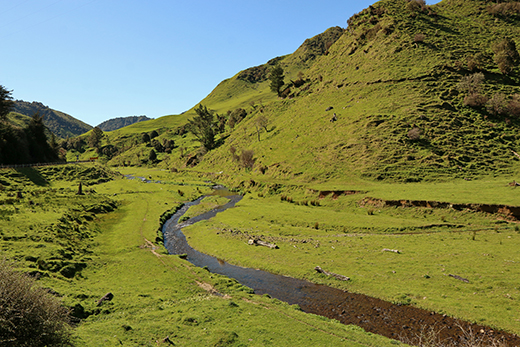Waikato Regional Council chairperson Alan Livingston is refuting claims he has “made misleading statements and shown arrogance to and a disregard for farming families and rural communities over the significant adverse impacts council’s Plan Change 1 will have on them” made by Rick Burke, chair of Farmers for Positive Change Wai Ora Waipa-Waikato – also known as F4PC.
“To his credit Alan was at the meeting we held at Te Kuiti in November, attended by around 170 farmers, but it was the statements he made at the end of the meeting which has farmers ropable,” says Rick.
“Alan told the meeting that the Collaborative Stakeholders Group reached a unanimous agreement on the plan change and that was absolutely untrue. James Bailey, who was the drystock farmers’ representative on the group, refused to sign off on the CSG decision – so it was clearly not unanimous.
“Also in his address to the Te Kuiti meeting Alan attempted to ‘dumb down’ the effects of the plan change on farmers and rural communities.”
Alan disputes those statements. “There’s no way I would have tried to convey the impression that all sectors on the Collaborative Stakeholder Group reached unanimous agreement on the plan change.
“I know very well this is not true. I may well have said the CSG is united in its commitment to achieve the vision and strategy for the Waikato and Waipa rivers. But clearly there was some disagreement within the CSG about how best to do this through the plan change.
“What I know I said was that there was not total agreement as some sectors, including sheep and beef, voted against aspects of the plan. I specifically acknowledged James Bailey and Graham Gleeson from the sheep and beef sector for the work that they did and that there were aspects of the plan that they didn’t support.
River protection
“As a drystock farmer in the Waipa catchment, and with a relatively large number of waterways on my property, I am well aware of what the physical and financial implications might be,” says Alan.
“We strongly urge all sectors to submit on the proposed plan change to make their views known so that we get the best possible final plan change. Farmers and others in the rural sector shouldn’t be shy about giving us their views.
“But the reality is the rivers do need protection and the legally-binding Vision and Strategy requires us to collectively take action to achieve, over time, the goal of them being safe for swimming and food gathering over their entire lengths,” says Alan.
However, Rick, who is sticking by his statement, says Alan and other Waikato Regional Council councilors fail to understand the significant financial and emotional impacts of the plan change – which F4PC says is “grandparenting” and effectively rewards the polluters and disadvantages drystock farmers.
Nasty implications
“The nasty implication of grandparenting infiltrates right through the plan and has created the whole negative impact to it. If that aspect of the plan change was removed, then I believe all sectors, including council, could sit down to talk and reach agreement on the rest of the plan.
“Alan Livingston claims the CSG process was a wonderful success, but in fact it failed because it was not collaborative. It did not follow the basic principles of collaboration and was not signed off by all parties. “Hence the reaction to Plan Change 1 [also known as PC1].
“F4PC, with increasing farmers’ support, will go outside the normal rules of engagement and do whatever it takes to ensure we protect sustainable farm systems, families, communities and the environment,” says Rick.
The biggest concern for F4PC relating to PC1 is around the approach to managing nitrogen, which sees nitrogen discharges capped at 2014-2015 or 2015-2016 levels.
Rick says this method allows the larger dischargers of nitrogen to carry on as normal and not address their environmental impacts. Whereas low emitters of nitrogen, mainly drystock farmers, will be capped at low levels with little head room or flexibility to react to market forces, or to alter their farming systems to remain profitable.
“This principle has created a negative culture across farming communities from day one; it incentivises perverse behaviour such as gaming of the system and increasing contaminant losses, while pitching dairy against drystock farming, when in fact we should be all working together to achieve the vision and strategy of Healthy Rivers.”



0 Comments
Leave a Comment